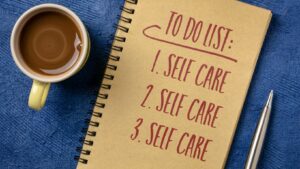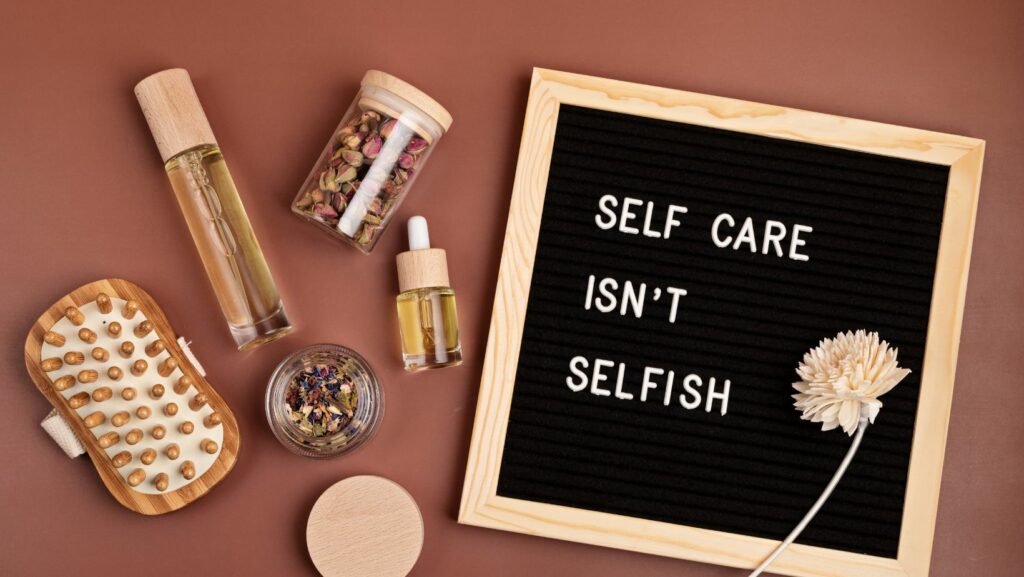In today’s fast-paced world, it’s easy to neglect self-care and wellness. Yet, prioritizing these aspects is crucial for maintaining a balanced and healthy lifestyle. By integrating simple yet effective self-care practices into daily routines, individuals can enhance their physical, mental, and emotional well-being.
This guide explores practical tips to help anyone prioritize self-care and wellness. From mindfulness techniques to exercise routines and nutritional advice, these strategies are designed to fit seamlessly into even the busiest schedules. Discover how small, consistent changes can lead to significant improvements in overall health and happiness.
How To Prioritize Self-Care And Wellness Tips For a Healthier Lifestyle
 Integrating self-care into daily routines enhances overall well-being. Below are essential aspects to consider.
Integrating self-care into daily routines enhances overall well-being. Below are essential aspects to consider.
Self-care involves activities and practices individuals engage in regularly to manage stress and maintain mental and physical health. Examples include meditation, exercise, adequate sleep, and balanced nutrition. Each activity aims to refresh individuals mentally and physically, promoting long-term well-being.
Why Prioritizing Self-Care is Crucial for Well-being
Prioritizing self-care is vital for maintaining mental and physical stability. High stress levels often lead to burnout and various health issues, while consistent self-care practices reduce stress and enhance resilience against challenges. Research by the American Psychological Association (APA) shows that incorporating self-care reduces anxiety and depression symptoms, creating a healthier, balanced life.
Essential Self-Care Practices for Everyday Life
Incorporating daily self-care practices into your routine enhances overall well-being. Focus on maintaining both physical and mental health to achieve a balanced lifestyle.
Physical Well-Being Tips
 Engaging in regular physical activity improves cardiovascular health and boosts mood. Aim for at least 150 minutes of moderate aerobic exercise per week, such as brisk walking or cycling.
Engaging in regular physical activity improves cardiovascular health and boosts mood. Aim for at least 150 minutes of moderate aerobic exercise per week, such as brisk walking or cycling.
Get adequate sleep to allow the body to recover and repair. According to the National Sleep Foundation, adults need 7-9 hours of sleep per night for optimal health. Create a bedtime routine that includes winding down without electronic devices.
Healthy eating nourishes the body with essential nutrients. Incorporate a variety of fruits, vegetables, whole grains, and lean proteins into your diet. Stay hydrated by drinking at least 8 cups (2 liters) of water daily.
Mental Health Strategies
Practice mindfulness to reduce stress and improve focus. Meditation, deep-breathing exercises, and listening to calming music can further enhance relaxation and create a peaceful environment for mental well-being. Platforms like Brain.fm provide music specifically designed to enhance focus and mental clarity. Spend 10-15 minutes each day meditating or enjoying soothing melodies to achieve mental clarity.
Establish healthy boundaries to protect your mental health. Learn to say no to avoid overcommitting. Allocate time for hobbies and activities that bring you joy and relaxation.
Connect with others to combat loneliness. Maintain healthy relationships through regular communication. Join social groups or participate in community activities for support and a sense of belonging.
Integrating Wellness into Your Lifestyle
Achieving a healthier lifestyle involves seamlessly incorporating wellness practices into daily life. By making deliberate choices, individuals can enhance their physical, mental, and emotional well-being.
Creating a Balanced Diet Plan
 To maintain a balanced diet, individuals should include a variety of nutrients. They should consume fruits, vegetables, lean proteins, whole grains, and healthy fats. For example, meals can comprise grilled chicken, quinoa, and steamed broccoli. According to the USDA, a well-rounded diet supports overall health and aids in disease prevention. Removing processed foods high in sugar and unhealthy fats contributes to better energy levels and weight management. People should also stay hydrated by drinking at least 8 glasses of water daily.
To maintain a balanced diet, individuals should include a variety of nutrients. They should consume fruits, vegetables, lean proteins, whole grains, and healthy fats. For example, meals can comprise grilled chicken, quinoa, and steamed broccoli. According to the USDA, a well-rounded diet supports overall health and aids in disease prevention. Removing processed foods high in sugar and unhealthy fats contributes to better energy levels and weight management. People should also stay hydrated by drinking at least 8 glasses of water daily.
Time Management for Self-Care
Prioritizing self-care and wellness isn’t just about knowing what to do; it’s about making time for these essential practices. By scheduling regular self-care activities into daily routines, individuals can ensure they’re consistently taking steps toward a healthier lifestyle. It’s crucial to remember that self-care is not a luxury but a necessity. Allocating even small chunks of time for activities like exercise, meditation, or preparing nutritious meals can make a significant difference in overall well-being.
Balancing work, social commitments, and personal time might seem challenging, but with effective time management, it’s entirely achievable. Setting clear priorities and boundaries can help create a more balanced and fulfilling life. Ultimately, investing in self-care and wellness leads to a more resilient, healthier, and happier self.

